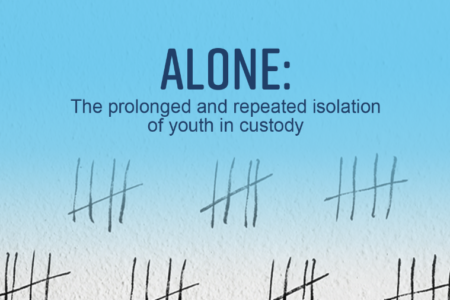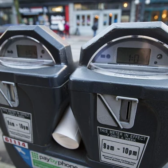Primary learners in SD8 performing below grade level in reading, writing: report
A significant number of primary learners in School District No. 8 are performing below grade level in reading and writing, according to the Literacy Annual Report 2022.
Produced by School District No. 8 (Kootenay Lake), the report noted for the past five years SD8 Kindergarten assessment and Read by Grade Three data showed a dip in reading and writing testing for primary learners.
“Furthermore, the data also indicated that many children who were performing below grade level in the primary years transitioned to the intermediate grades lacking confidence and proficiency in their reading and writing skills,” the report stated.
The results are being taken seriously in the school district, said SD8 superintendent of schools, Trish Smillie, and the district has made it a priority to improve literacy proficiency for all learners, Kindergarten to Grade 12.
To ensure that learners are given the best possible chances of improving in literacy, a three-year district literacy plan focused on improving literacy outcomes for all K-12 learners has been developed, she said.
“SD8 supports a district-wide literacy initiative in primary (K-3 classrooms) to better understand the challenges children were having in literacy learning and to mitigate those challenges by supporting teachers with necessary resources and tools,” Smillie said.
The Early Literacy Profile helps school primary teams to analyze their school’s literacy data in order to prioritize supports and resources where needed.
“Alignment of staff and district resources, in addition to a collaborative, inclusive approach to working with all learners in the classroom, has resulted in a system-wide shift in philosophy, pedagogy and practice at the primary level,” she added.
“This will ensure that SD8 is on track for meeting the goal of every student completing Grade 3 with the skills and confidence of being a proficient reader and writer.”
SD8 has also created a digital literacy resource hub on the SD8 website that includes videos, literacy lessons and tools, and links to literacy resources. This digital hub is a “one stop shop” for all teachers to use as a support with designing and teaching a balanced literacy program in order to best meet the needs of all learners.
Smillie said for the upper grades, SD8 students in Grades 4 and 7, 2020-2021 provincial Foundation Skills Assessment (FSA) data in reading and writing shows that SD8 children are performing on par with the provincial average.
“In addition, the Grade 10 provincial literacy assessment, a requirement for graduation from high school, shows that SD8 students are on par with Grade 10 students across B.C.,” she said.
Overview of literacy in primary
(Kindergarten to Grade 3)
The Primary Literacy Coherence model is a three-year initiative.
For the 2021-22 school year, the focus is on building capacity in Grade 1 and 2 classroom teachers. Next year, the focus will shift to Grade 2 and 3 teachers.
Evidence of success after the first year with the new Primary Literacy Coherence Model is already apparent.
One teacher shared, “By using a one page class profile it takes the guesswork out of what I need to focus on to support my students. I can’t wait to see how this model follows my Kindergarten students throughout their entire time in elementary school.”
From a principal’s perspective, “This Early Literacy Profile that we have implemented in the primary grades is the best example of coherence that I have seen in our district. Equity is being addressed through differentiation and allows us to scoop groups of students to address learning needs as they arise.”
Source: Excerpt from Literacy Annual Report 2022
Overview of literacy and assessment for learning
(Intermediate to Secondary (Grades 4-12))
The Student Learning Survey data indicates that students would like more input into what and how they are learning.
The district will endeavour to focus on finding opportunities for school teams to support inclusive and engaging activities and opportunities for students as well as finding ways to support student voice and choice in what they are learning and in how they are demonstrating their learning.
In addition, the implementation of the SD8 Laptop Initiative at the Grade 7 and 10 level will help to support this objective.
SD8 data also shows a noticeable trend regarding student academic self-efficacy. As students progress into the higher grades, their self-efficacy appears to decline, even though they may be trying their best to improve.
Furthermore, corresponding provincial literacy assessment data also indicates significant reading achievement gaps for students with diverse needs and students with Indigenous ancestry.
Developing a professional learning series that focuses on classroom assessment strategies such as Assessment for Learning, using BC Performance Standards, and using student exemplars to support classroom planning, teaching and assessing will further support learners.
A district literacy toolkit for supporting students with diverse needs will be housed on the district literacy hub. Finally, ongoing collaboration with Aboriginal Academic Success teachers will continue to focus on infusing Indigenous content and perspectives across the curriculum and supporting the academic needs of students with Indigenous ancestry.
To ensure that all learners improve in their proficiency in literacy, ongoing collaboration with all education partners, including school staffs, Aboriginal Education staff, and district itinerant staff will occur in developing a three-year district literacy plan.
This will include a focus on data analysis and improving participation rates; developing sustainable, collaborative communities of practice focused on literacy instruction and assessment strategies; and ensuring inclusive literacy resources are available to schools and students.
Source: Excerpt from Literacy Annual Report 2022



























